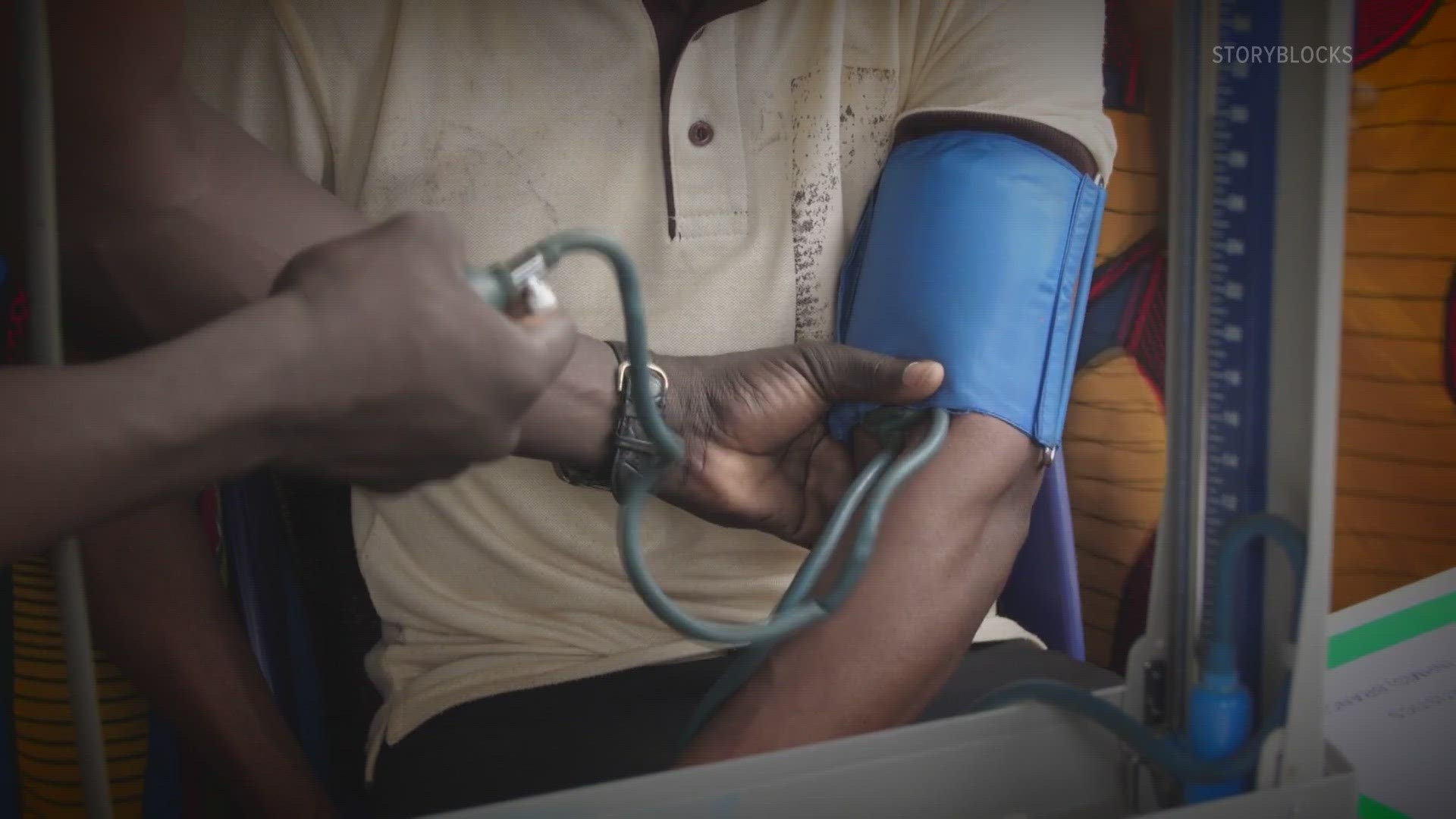ST. LOUIS — April is National Minority Health Month, a time to raise awareness about health care disparities. The lack of access to quality care can have a huge impact on health. And now, one St. Louis man is working to close the gap.
"You know, in this life, if you get a certain age, it's like they put you in this grave," said 86-year-old Gwendolyn Favez, who lives in Kirkwood.
For so long, Favez said she felt like her doctors just didn’t care.
“They pay no attention. There's no communication with the doctor. They don't talk with you anymore," she said.
For years, she’s been on Medicare, federal health insurance for people 65 or older. She felt like a number with too many medications. She had 27 different medications for conditions like lupus, heart disease and arthritis. Her nephew and caregiver Patrick O’Neil was bracing for goodbye.
“I don't even know how to pronounce it half the time," O’Neil said. “And before you know it, less than a week later, my aunt was literally lying, sitting in her chair like a vegetable. When I walked in, she looked up at me and said, 'I think I'm dying.'”
Everything changed when they came across a different type of pharmacy: GreaterHealth Pharmacy & Wellness in St. Louis' West End neighborhood.
“Would you say GreaterHealth Pharmacy saved your aunt's life?” the I-Team's Paula Vasan asked.
“Yes, they did. Yes, they did," O’Neil said.
“Providing culturally responsive, radically inclusive services to a diverse community is really important," said Marcus Howard, founder of GreaterHealth Pharmacy & Wellness. “In order for our community to become healthier, we have to bridge that trust gap that has exacerbated throughout history," he said.
He said it's a history that includes Alabama physician J. Marion Sims, who operated on enslaved Black women without consent or anesthesia in the 1840s.
It also includes the infamous Tuskegee experiment that started in the 1930s, promising hundreds of African American men free medical care. Researchers knowingly withheld their disease status related to syphilis, a deadly disease with no cure at the time the study began. Even when penicillin became the standard treatment in the 1940s, researchers intentionally ignored it. More than 100 people died.
“They feel more comfortable calling us, talking to one of our pharmacists who looks like them, who sounds like them, who can connect with them," Howard said.
When deciding where and how to open his pharmacy, Howard looked at an analysis from the University of Illinois Chicago based on data from the National Council for Prescription Drug Programs. Researchers found about 15% of people in the City of St. Louis live more than a mile away from a pharmacy. Others lack access to transportation.
And others, like Favez, don’t feel listened to, so they skip medication. Their health suffers.
Research shows people on public insurance can suffer the most, according to researchers from the University of Southern California. For example, fewer physicians accept Medicaid, health insurance for people with typically lower incomes. Doctors who see Medicaid patients also get paid less. Jenny Guadamuz with the University of Southern California said that can impact quality -- doctors have less time to spend with patients.
Nationwide research from the University of Southern California shows Black neighborhoods, in cities from Los Angeles and Chicago to New York City, have fewer pharmacies that close more often. Why? Because people in these areas are uninsured or publicly insured, which means less profit for the pharmacy.
In response, some states like Illinois passed a law increasing what pharmacies get paid if they’re in areas with few pharmacies.
Research from the National Academy of Medicine has found that racial and ethnic minorities receive lower-quality health care than white people. That’s even when insurance status, income, age and conditions are similar. Some of this is due to implicit bias, stemming from false and racist beliefs that Black people have higher pain tolerances for example.
At GreaterHealth Pharmacy, a pharmacist sat down with Favez for an hour to go through her medications.
“They make you feel like you are special. They make you feel like, you know, these people love you,” Favez said.
The pharmacy offers free delivery. In fact, Howard often does it himself. Right now, he said he’s looking for investors to help sustain his work. It's work that O’Neil believes is the reason his aunt is still alive.
“He actually said some of these medicines, we're going to have to switch to a different type of medicine that does the same thing, less dosage because she's taken too high of the dosage that's causing effects with the other medicine," O’Neil said. “Two days later, we were spending four hours in Wal-Mart just because the medications changed. She had her energy back. She had more life to her.”
GreaterHealth Pharmacy is funded through the Missouri Foundation for Health. Right now, they’re working to triple their patient count by the end of next year. If you want to become a patient, you can call them during normal business hours at 314-200-5313.
If you have a tip on this story or anything else, email Paula directly at paula@ksdk.com.
To watch 5 On Your Side broadcasts or reports 24/7, 5 On Your Side is always streaming on 5+. Download for free on Roku or Amazon Fire TV.

